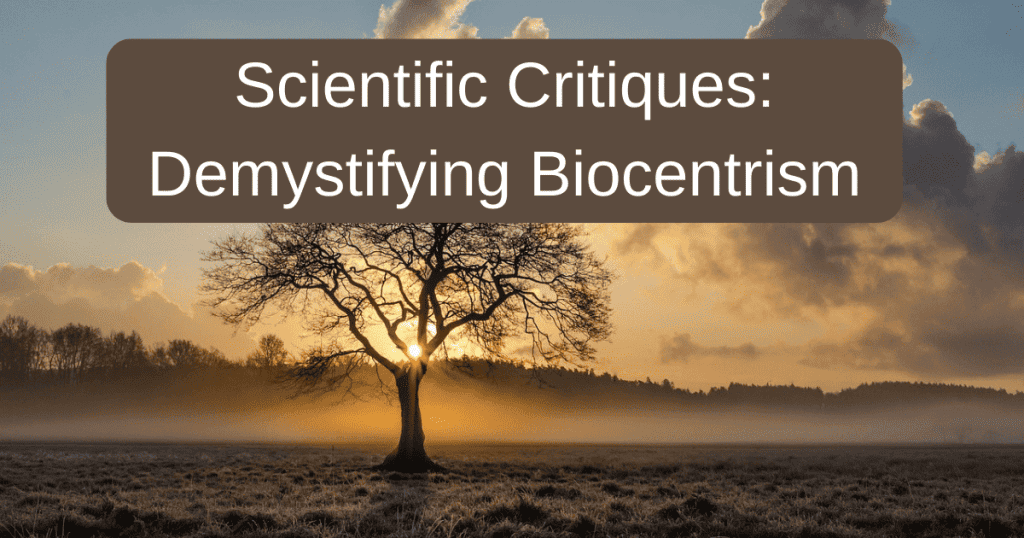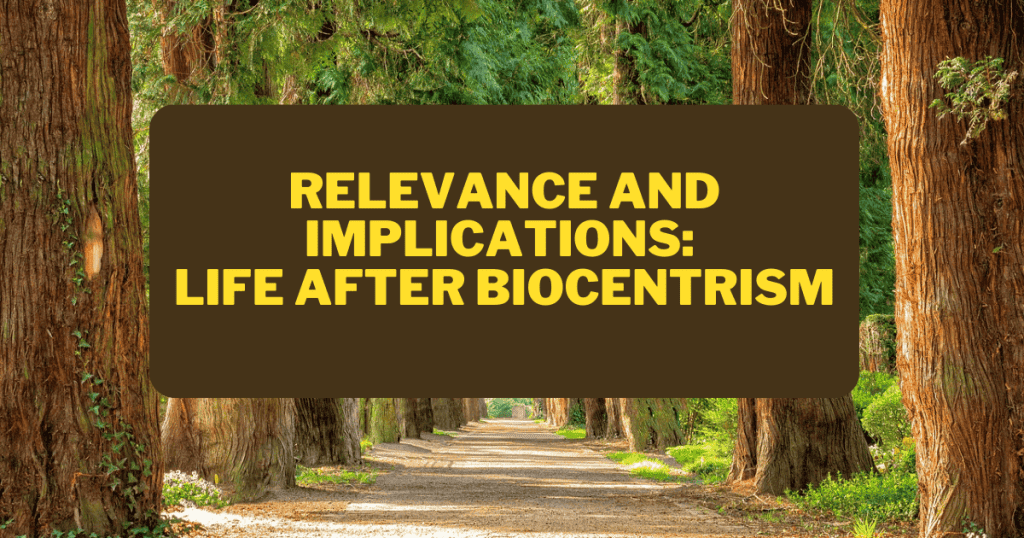Last Updated on January 23, 2024 by Gavi

Biocentrism debunked, a philosophy that places life at the center of the universe, has gained considerable popularity in recent years. Advocates argue that our consciousness shapes reality, challenging traditional scientific views. In this article, we embark on a journey to debunk some of the key claims of biocentrism, examining its scientific validity and exploring alternative explanations.
The Biocentric Universe: A Closer Look Biocentrism Debunked
Before diving into the debunking process, let’s understand what biocentrism is all about. At its core, biocentrism asserts that life, particularly human consciousness, is not a product of the universe but its creator.
This idea challenges the established principles of physics and cosmology, particularly those rooted in quantum mechanics.
Biocentrism’s Quantum Quandary
The Observer Effect: Unraveling Misconceptions
Biocentrism often leans on the mysterious world of quantum mechanics, specifically the observer effect, as a cornerstone of its philosophy. Here’s the kicker: the observer effect is a real phenomenon in quantum physics, but it doesn’t quite function as biocentrism suggests.
In quantum mechanics, the observer effect acknowledges that the act of observation influences the behavior of particles. Biocentrism, however, takes a leap into the metaphysical, claiming that consciousness fundamentally creates reality. Unveiling the Truth: Biocentrism debunked, revealing a disconnect between its lofty claims and scientific realities.
In reality, the observer effect doesn’t empower human consciousness to shape the universe at will.
Life Creates the Universe: A Cosmic Misinterpretation
Biocentrism boldly declares that life is the engine behind the creation of the universe. While it’s a captivating idea, it falls short in the face of established scientific principles, particularly the laws of thermodynamics. Life doesn’t create the universe; instead, it’s a product of the intricate dance of matter and energy.
Scientific Critiques: Demystifying Biocentrism

Quantum Mechanics: Not a Blank Check for Biocentrism
Quantum mechanics, with all its weirdness, doesn’t provide a carte blanche for biocentrism. The quantum world is mysterious and fascinating, but it operates under specific rules. Biocentrism Debunked: Scientific scrutiny dismantles the notion that life’s consciousness shapes the very fabric of the universe. Biocentrism’s interpretation tends to cherry-pick quantum principles, creating a narrative that oversimplifies the complexities of the quantum realm.
Energy Conservation: Battling Biocentrism with Thermodynamics
Biocentrism’s assertion that life plays a role in creating the universe clashes with the fundamental laws of thermodynamics. These laws dictate the conservation of energy, and the spontaneous generation of the universe by consciousness doesn’t align with these well-established principles.
Philosophical Considerations: Ethical Dilemmas and Perceptual Puzzles
Ethics and Biocentrism: Navigating the Moral Landscape
Biocentrism’s ethical implications are worth exploring. While the philosophy advocates for a heightened environmental consciousness, debunking biocentrism doesn’t undermine the importance of ethical treatment of the environment. Biocentrism Debunked: Peel back the layers, and it becomes clear that this once-touted philosophy lacks empirical support to stand firm. There are alternative approaches to fostering environmental awareness that don’t hinge on biocentrism’s shaky foundation.
Human Perception: A Reality Check
Biocentrism challenges our understanding of reality by asserting that consciousness molds the universe. However, this perspective clashes with the consensus of how human perception and consciousness interact with the external world. It’s crucial to question whether subjective reality, as proposed by biocentrism, holds up under scrutiny.
Alternative Explanations: Beyond Biocentrism
Multiverse Theories: Exploring Other Dimensions
Diving into multiverse theories provides a fascinating alternative to biocentrism. The idea that our universe is just one of many opens up new possibilities without relying on consciousness as the sole creator of reality.
Consciousness Studies: A Different Path
Consciousness studies offer a more grounded exploration of the mind’s role in shaping our understanding of the universe. Unlike biocentrism, which places consciousness at the forefront of creation, consciousness studies delve into the intricacies of how our minds perceive and interact with the world.
Relevance and Implications: Life After Biocentrism

Environmental Ethics without Biocentrism: A Path Forward
Debunking biocentrism doesn’t diminish the importance of environmental ethics. By embracing a broader perspective that considers the interconnectedness of all life, we can still champion environmental causes without relying on the unsteady foundations of biocentric philosophy.
Nuanced Perspectives: Finding Harmony
In concluding our exploration, it’s crucial to recognize the nuanced perspectives that science, philosophy, and ethics bring to our understanding of the universe. While biocentrism captures our imagination, a more balanced and evidence-based approach allows us to appreciate the richness of our existence.
In unraveling the fabric of biocentrism, we’ve navigated through quantum mysteries, thermodynamic principles, ethical landscapes, and alternative explanations. It’s a journey that challenges us to question, explore, and appreciate the intricate tapestry of our universe without relying on a philosophy that stretches the boundaries of scientific credibility. As we peer into the cosmos, let’s continue seeking answers that harmonize with the laws of nature rather than those crafted by the whims of consciousness.